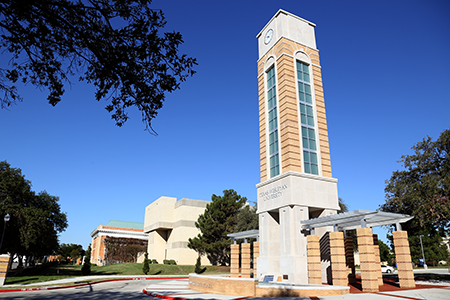TXWES Reimagines Teacher Education with New Grant

The teacher shortage in Texas continues to be an issue. The problem is especially acute as a significant portion of teachers leave the profession each year. In fact, data from the 2022-23 school year reveals that roughly one in five Texas teachers did not return to the classroom the following year.
One of the biggest issues causing teachers to leave? Being unprepared.
Texas Wesleyan University's School of Education is tackling this issue head-on by partnering with the University-School Partnerships for the Renewal of Educator Preparation (US PREP), a national organization that facilitates partnerships between universities and school districts to improve teacher preparation. Through this collaboration, Texas Wesleyan has secured a $300,000 grant spread over three years to enhance the University's existing teacher residency program specifically designed for undergraduate education students.
Dr. Elsa Anderson, professor of education and chair of undergraduate education, and Dr. Elizabeth Ward, associate professor of education, spearheaded the grant proposal, aiming to establish additional partnerships with local school districts. Last year, the department piloted a residency program with the Fort Worth ISD for undergraduate education students.
The residency program's effectiveness lies in its extended duration. Research indicates that year-long residencies are more successful than traditional semester-long student teaching placements.
“Being there the whole year has been found to be more effective than the every day for one semester approach,” Anderson said. “We just graduated our first group of residents, and they are doing well. Most of them have already been hired for the upcoming school year.”
It's crucial to remember that first-year teachers play a vital role in educating at least half a million Texas students annually, with a significant number serving in underserved communities, as reported by the Teacher Vacancy Task Force created by Governor Greg Abbott. The Task Force specifically recommended that Texas invest more heavily in teacher residency programs due to their proven ability to boost teacher retention and improve student outcomes.
But the benefits don't stop there. The grant also provides resources for TXWES' education faculty to undergo professional development opportunities. This translates to professors who are not only experts in their content areas but also stay current on the latest teaching methodologies. This fresh perspective directly benefits students by exposing them to a dynamic learning environment that reflects the realities of modern education.
“Any kind of professional development that the faculty receives directly impacts our students because it helps us further develop our coursework to impact our future teachers,” Anderson said.
The School of Education will also be able to further its data collection possibilities, allowing for continuous program evaluation and improvement. By analyzing this comprehensive data pool, TXWES can continuously refine and strengthen the residency program, ensuring it delivers the best possible preparation for future generations of Texas teachers. This data-driven approach guarantees lasting impact, creating a pipeline of highly qualified educators for years to come.
“We’re excited to scale up the residency program,” Anderson said. “The team at US PREP is very supportive and the resources they are providing Texas Wesleyan are very impressive. It will help attract and retain Texas teachers.”
The TXWES teacher residency program, armed with this grant, is poised to become a launchpad for a new kind of educator — one who thrives in a dynamic environment, fosters collaboration and embraces the constant evolution of education. But the true impact of this program might lie beyond the classroom walls. Could these future educators be the key to unlocking a hidden potential within the education system itself? Only time will tell, but one thing's for sure: TXWES is committed to helping future teachers not only succeed but thrive in their careers.








